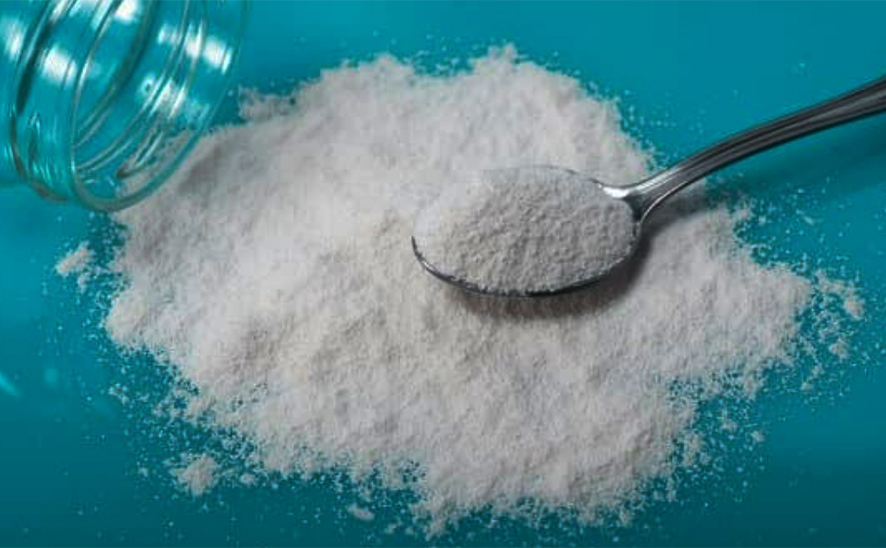L-lysine Hydrochloride (HCl) Is A Form Of The Essential Amino Acid Lysine That Is Commonly Used In Dietary Supplements

L-lysine hydrochloride (HCl) is a form of the essential amino acid lysine that is commonly used in dietary supplements and as a food additive. Lysine is essential because the body cannot produce it on its own, so it must be obtained through diet or supplementation. Here are some of the potential benefits associated with L-lysine HCl:
Supports Protein Synthesis: Lysine is a crucial building block for protein synthesis, which is essential for muscle growth, tissue repair, enzyme production, and overall cellular function.
Promotes Collagen Formation: Lysine plays a role in the formation of collagen, a protein that is vital for maintaining the structure and elasticity of connective tissues such as skin, tendons, and cartilage. Therefore, L-lysine supplementation may support skin health and wound healing.
Enhances Calcium Absorption: Lysine may help the body absorb calcium more efficiently. This is particularly beneficial for bone health, as calcium is essential for maintaining strong and healthy bones.

Supports Immune Function: Lysine is involved in the production of antibodies, which are essential for a healthy immune response. Some research suggests that L-lysine supplementation may help support the immune system and reduce the frequency and severity of cold sore outbreaks caused by the herpes simplex virus.
May Aid in Anxiety Reduction: Some preliminary research suggests that lysine may have anxiolytic (anxiety-reducing) effects by modulating neurotransmitter activity in the brain. However, more research is needed to fully understand the extent of its potential benefits for anxiety.
May Help Manage Herpes Infections: Lysine has been studied for its potential to inhibit the replication of the herpes simplex virus (HSV), which causes cold sores and genital herpes. Some individuals use L-lysine supplements to help manage symptoms and reduce the frequency of outbreaks, although evidence supporting its effectiveness is mixed.
Supports Athletic Performance: Lysine is involved in energy production and muscle metabolism, which may benefit athletes and individuals engaged in regular physical activity. Some studies suggest that lysine supplementation may help improve exercise performance and reduce muscle fatigue, although more research is needed to confirm these effects.
O. A. Izquierdo, C. M. Parsons, D. H. Baker, Bioavailability of Lysine in L-Lysine·HCl, Journal of Animal Science, Volume 66, Issue 10, October 1988, Pages 2590–2597, https://doi.org/10.2527/jas1988.66102590x
M. R. Smiricky-Tjardes, I. Mavromichalis, D. M. Albin, J. E. Wubben, M. Rademacher, V. M. Gabert, Bioefficacy of L-lysine sulfate compared with feed-grade L-lysine•HCl in young pigs, Journal of Animal Science, Volume 82, Issue 9, September 2004, Pages 2610–2614, https://doi.org/10.2527/2004.8292610x
Smiricky-Tjardes, M. R., I. Mavromichalis, D. M. Albin, J. E. Wubben, M. Rademacher and V. M. Gabert. 2004. Bioefficacy of L-lysine sulfate compared with feed-grade L-lysine⋅HCl in young pigs. J. Anim. Sci. 82:2610-2614.
DROSERA ROTUNDIFOLIA
Drosera rotundifolia, commonly known as the round-leaved sundew, is a carnivorous plant native to temperate regions across the Northern Hemisphere. While it’s primarily known for its insect-trapping capabilities, it has also been used in traditional herbal medicine for various purposes. Here are some potential benefits associated with Drosera rotundifolia:
Respiratory Health: In traditional herbal medicine, Drosera rotundifolia has been used to support respiratory health. It is believed to have expectorant properties, meaning it may help to loosen and expel mucus from the respiratory tract. As a result, it has been used in the treatment of conditions such as coughs, bronchitis, and asthma.

Antitussive Properties: Drosera rotundifolia has been traditionally used as an antitussive agent, meaning it may help to suppress coughing. It is believed to act by soothing irritation in the throat and respiratory passages, thereby reducing the frequency and severity of coughing fits.
Anti-inflammatory Effects: Some research suggests that Drosera rotundifolia may possess anti-inflammatory properties. This could potentially make it useful in the management of inflammatory conditions, although further studies are needed to confirm its effectiveness for this purpose.
Antioxidant Activity: Like many botanicals, Drosera rotundifolia contains compounds with antioxidant activity. Antioxidants help to neutralize harmful free radicals in the body, which may protect against oxidative stress and reduce the risk of chronic diseases such as heart disease and cancer.
Digestive Aid: In some traditional systems of medicine, Drosera rotundifolia has been used to aid digestion. It is believed to stimulate digestive juices and improve overall digestive function, although scientific evidence to support this use is limited.
Заживление ран: External applications of Drosera rotundifolia have been used to promote wound healing. It is believed that the plant’s mucilage content may help to soothe irritated skin and accelerate the healing process.
Pain Relief: In traditional medicine, Drosera rotundifolia has been used to alleviate pain associated with various conditions, including sore throat, muscle aches, and joint pain. However, more research is needed to understand the mechanisms behind its potential analgesic effects.
Kämäräinen T, Uusitalo J, Jalonen J, Laine K, Hohtola A. 2003. Regional and habitat differences in 7-methyljuglone content of Finnish Drosera rotundifolia. Phytochemistry 63: 309–314.
Krafft CC, Handel SN. 1991. The role of carnivory in the growth and reproduction of Drosera filiformis and D. rotundifolia. Bulletin of Torrey Botanical Club 118: 12–19.
Svensson BM. 1995. Competition between Sphagnum fuscum and Drosera rotundifolia: a case of ecosystem engineering. Oikos 74: 205–212.









